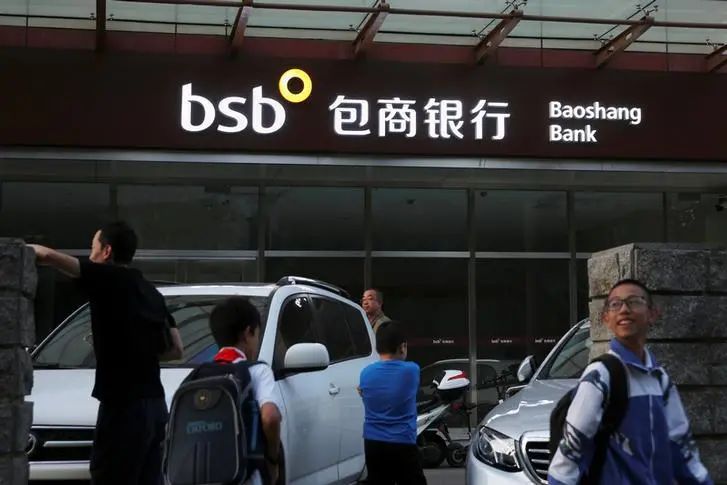PHOTO
(The author is a Reuters Breakingviews columnist. The opinions expressed are his own.)
HONG KONG - Beijing will let Baoshang Bank go under in the first such insolvency since 2001 – a quiet warning shot fired at Chinese financial markets. The liquidation of the municipal lender, used as a piggy bank by an insurer, will raise borrowing costs for small peers and possibly push more of them to the brink. With the economy still wobbling, it’s a risky time to cleanse the system.
Baoshang was dramatically taken over by the central government last year. Its controlling investor was the Tomorrow Group, an insurer led by Xiao Jianhua, who was informally extradited from Hong Kong to the mainland and hasn’t been seen since. His empire went into liquidation. Baoshang, with 576 billion yuan ($83 billion) in assets as of 2017, will now join it, the central bank said on Friday.
Having ported Baoshang’s good assets into two other banks, what’s left of the lender will now be allowed to collapse. China’s asset managers are already stuffed with distressed credit, and regulators want to improve the way risk is priced between banks. So long as everyone assumed loans to lenders were guaranteed, they were happy to invest spare cash in feeble institutions, reaping slightly higher interest rates at no perceived risk. Such borrowings helped Baoshang keep funding the Tomorrow Group’s speculations.
Since they put in place a deposit insurance scheme in 2015, officials have threatened to let poorly managed banks go bankrupt. Now they have followed through. Most institutions that lent to Baoshang took haircuts of around 10%, per local media reports. On the other hand, the People’s Bank of China guaranteed individual’s deposits as well as wealth management investments, revealing an anxiety about how people would react if the deposit insurance scheme was formally invoked. In addition, the PBOC intervened in the interbank market to prevent rates from spiking as institutional investors realised the market suddenly had a much larger degree of counterparty risk than previously assumed.
Now short-term borrowing rates are rising again as the central bank pauses monetary easing. Reports of mini-runs on small lenders, some of which have non-performing loan ratios well into the double-digits, are rising too. Baoshang has set a template for failure, and it may be applied to others soon.
CONTEXT NEWS
- China's central bank said on August 7 it would allow Baoshang Bank to file for bankruptcy and liquidate any remaining assets.
- Chinese financial regulators took control of Baoshang in May last year citing serious credit risks, and have since approved Mengshang Bank, a newly revamped bank based in Inner Mongolia, and Hong Kong-listed Huishang Bank to take over its assets and operations.
(The author is a Reuters Breakingviews columnist. The opinions expressed are his own.)
(Editing by Una Galani and Sharon Lam) ((pete.sweeney@thomsonreuters.com; Reuters Messaging: pete.sweeney.thomsonreuters.com@reuters.net))





















